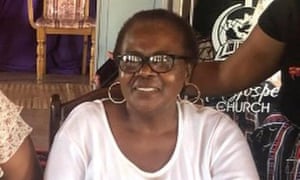Fikile Ntshangase was involved in a legal dispute over the extension of an opencast mine when she was shot dead in her home. Her daughter Malungelo Xhakaza tells her story to Rachel Humphreys
In October last year, Fikile Ntshangase, 65, was at her home in Ophondweni in South Africa when three men burst in and she was shot dead. The murder was witnessed by her 13-year-old grandson. No one has so far been charged with any part in the crime.
Ntshangase’s daughter Malungelo Xhakaza tells Rachel Humphreys that her mother had been involved in a legal dispute over the extension of an opencast mine operated by Tendele Coal near Somkhele, close to Hluhluwe-Imfolozi park, the oldest nature reserve in Africa. She campaigned as part of the Mfolozi Community Environmental Justice Organisation.
The company has said any link to the death of Ntshangase is completely unfounded and called it a ‘senseless killing’. Kirsten Youens, Ntshangase’s lawyer, tells Humphreys that she is continuing to fight the expansion of the mine.
Figures released this week by Global Witness show that 227 people were killed in 2020 while trying to protect forests, rivers and other ecosystems that their livelihoods depended upon.
The Guardian’s global environment editor, Jonathan Watts, tells Rachel Humphreys that as world leaders prepare to head to Glasgow in November for the Cop26 climate change conference, the human rights of environmental activists must be firmly on the agenda.

The Guardian is editorially independent.
And we want to keep our journalism open and accessible to all.
But we increasingly need our readers to fund our work.
